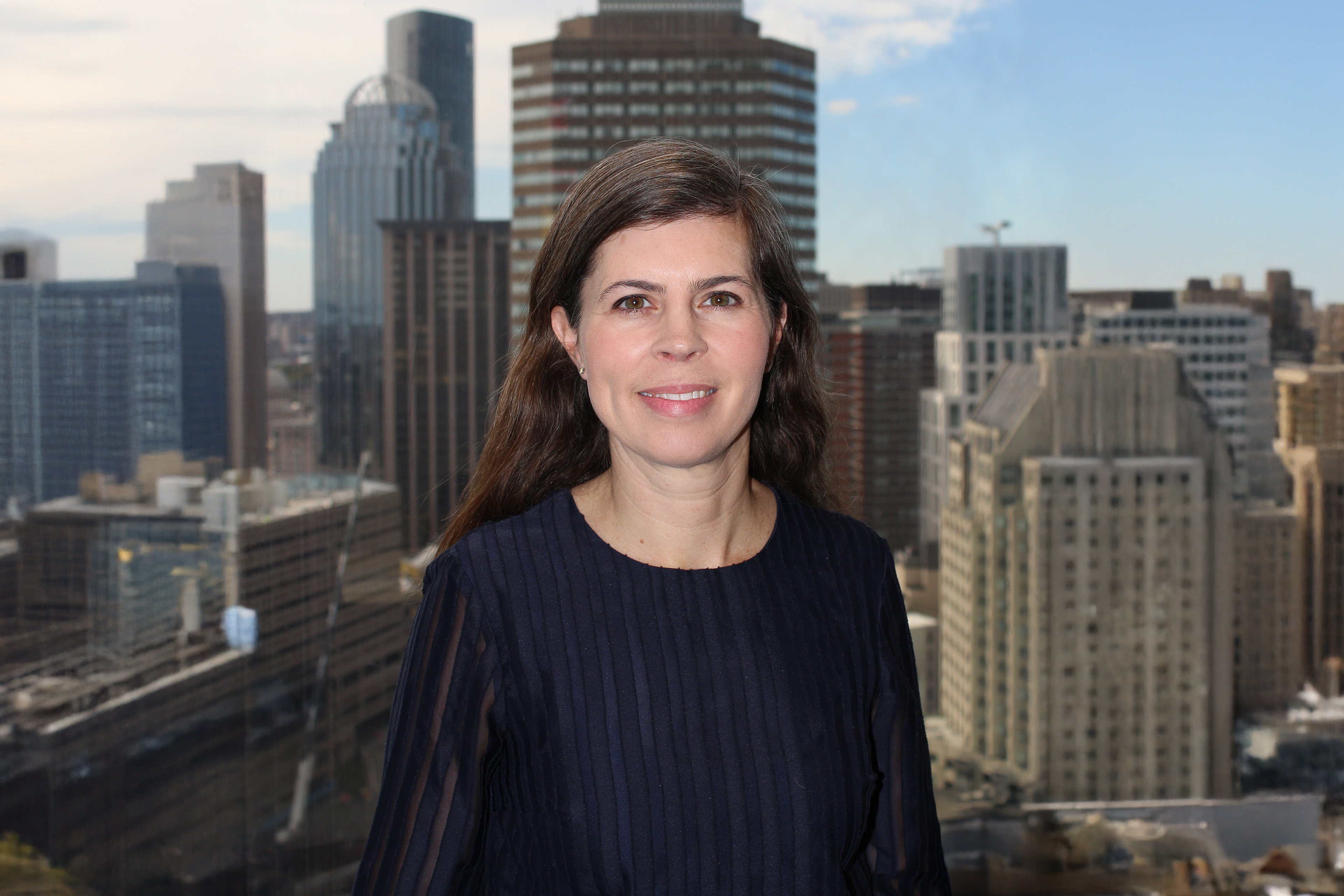EY refers to the global organization, and may refer to one or more, of the member firms of Ernst & Young Global Limited, each of which is a separate legal entity. Ernst & Young Global Limited, a UK company limited by guarantee, does not provide services to clients.

Evolution of programs like the EY Future Skills Workshops can make vital knowledge more accessible to all.
In brief
- Young people are building skills that are adaptable, critical and relevant to a changing working world.
- Workshops have evolved in response to the COVID-19 pandemic, with the introduction of virtual delivery.
- Partnerships with non-profits and other organizations have helped to directly deliver content to teachers and students, promoting accessibility to all.
For young people coming of age amid a climate emergency, a global pandemic and accelerating digitization, the world of work will be very different — not just because of hybrid and flexible ways of working, but by virtue of the new skillsets, qualities and attitudes employers are seeking.
Employers, educators and young people themselves know it will take different mindsets and skills for the next generation to adapt and thrive in the future workplace — no matter what it looks like.
These new capabilities are often summarized as the “4 Cs”: critical thinking, creativity, communication and collaboration. They capture a broad array of human capabilities, from long-term orientation and visioning, to complexity awareness and intercultural competence.
When a joint EY and JA (Junior Achievement) Worldwide team surveyed nearly 6,000 Gen-Z aged students last year, students rated traditional school subjects as significantly less important than exploring interdisciplanary themes, such as financial, entrepreneurial and environmental literacy, by a margin of up to 20 points.
These qualities, so critical to both long-term career success and sustainable development, are the focus of EY Future Skills Workshops (FSWs), a new learning channel designed to prepare students between the ages of 5 and 22 to enter the workforce as global citizens — teaching them topics they might not have access to in traditional education settings.
Chapter 1
Striving to create more widespread, equitable access
Increasing equity and inclusion has been a driving force behind the ongoing evolution of EY Future Skills Workshops.
Piloting the skills workshop model
For several years, a local EY member firm had been running emerging skills programs for young people, teaching topics like blockchain, sustainability and Artificial Intelligence (AI). EY Future Skills Workshops aimed to bring global scale to these efforts.
In 2019, the EY global corporate responsibility team developed an interactive workshop pilot targeting students between the ages of 13 and 18, with topics ranging from emerging technologies, sustainability, entreprenuership, business ethics and finance, to diversity, equity, and inclusion (DEI). The additions were popular and well-supported by students. On the sustainability module, a learner from Costa Rica has said that “These workshops help our generation advocate for the planet. We learn about these crises to inform others and work together to make a difference at school and in our communities.”
Strong demand and positive reviews for the workshop pilots — from schools, non-profits and EY participants — led to the engagement of EY professional curriculum developers to build out a more expansive range of quality content.
This not only included adding new topics, such as digital literacy and personal branding, but also tailoring materials for a wider variety of age groups. Case studies and group activities helped to increase student engagement, while take away materials for further learning and home practice increased content impact and longevity.
Since 2019, Future Skills workshops have been delivered in 45+ countries to 60,000 young people.
Evolving in response to the COVID-19 pandemic
Initially devised as an in-person experience, the delivery of EY Future Skills Workshops had to change when the COVID-19 pandemic struck. As highlighted by a 2020 survey of leading youth-focused organizations, the mass pivot to virtual learning has been fraught with challenges, from maintaining levels of enthusiasm and interaction in a digital setting to providing the additional training and guidance required by facilitators to run successful virtual events.
Yet, for all these challenges, the move to digital delivery has expanded the scale and reach of EY Future Skills Workshops. In-person experiences concentrated on services where provider organizations are based, whereas virtual models were able to connect people — irrespective of location and background — driving scale and increasing equity.
The Italian experience
For example, in Italy, EY partnered with JA Italia to deliver in-person workshops in the main cities near its offices. In February 2020, EY Italy and JA Italia were planning to deliver Future Skills Workshops in Milan, Rome and Brescia. The first workshop in Milan went ahead as planned, but the pandemic meant the team had to switch to virtual delivery for the remaining two.
The experience made EY Italy and JA Italia realize that they could expand the program into more regions, involving schools from remote towns and islands where there were higher unemployment rates and fewer economic and education opportunities.
For the ensuing 12 months, all the Future Skills Workshops were delivered virtually to a much more geographically diverse audience. Today, with restrictions lifted, the program has moved to a hybrid in-person (main cities) and virtual (regions) delivery, ensuring it continues to reach students in remote areas.
One EY volunteer has emphasized that “Understanding the power of collective actions to make a difference in education gives me purpose. The workshops are valuable in guiding students and setting them up for a brighter future.”
Bite-sized learning
To extend the program’s reach even further, EY then joined forces with SAP to develop and roll out textbased courses, distilling EY Future Skills Workshop modules on entrepreneurship into bite-size learning, provided via daily text messages. These text-based courses were accessible to anyone with a mobile phone and have had 10,000 completions in eight countries.
For one learner in Nigeria, the challenge “is to get a machine to become an entrepreneur. [The text-based course] has been helpful. I was able to apply these skills and learning in my daily doings.”
Evolving to directly support teachers and ministries of education
To reduce reliance on EY facilitators, the EY Ripples team in 2021 began pilots to provide EY Future Skills Workshops content directly to teachers.
In Lebanon, EY volunteers collaborated with Teach for Lebanon to train 82 teachers to deliver Future Skills Workshop modules to their students, including high-need groups like refugees. The Teach for Lebanon teachers are now empowered to deliver Future Skills content autonomously to their students, already reaching more than 3,600 students.
Similarly, in the United Arab Emirates, by collaborating with the Minister of Government Development Office and Emirates School Establishment, Future Skills Workshops have reached more than 40,000 students from across 100+ schools. Eighteen EY volunteers delivered five virtual sessions across the topics of emerging technology, blockchain, IoT, artificial intelligence and more, to students between the ages of 16-18.
In the future, EY plans to continue this initiative of leveraging Future Skills Workshops content in collaboration with the UAE's government.
Chapter 2
Creating change at scale
With each evolution of EY Future Skills Workshops, reach and impact are growing.
Evolving to an open-source model
The goal of EY teams is to make content directly available to students and teachers anywhere in the world.
Building on existing social impact collaboration with Microsoft, EY has leveraged Microsoft’s Community Training platform to open up content to interested non-profits. Through this model, EY Future Skills Workshop content can be shared on a Microsoft learning platform.
An example is the collaboration with the Trust for the Americas, which works across Latin America to create access to economic opportunities and promote social inclusion for underserved young adults. Entire EY Future Skills Workshops are provided in English, Spanish, and Portuguese. The Trust for the Americas will roll out these resources across Latin America, with a primary focus in Mexico, Colombia, and Brazil. As part of the ambition to make Future Skills Workshop content widely accessible, EY teams have also created an asychronous entrepreneurship module that supports self-directed learning. Through this approach, students can now readily access content and learn on their own without needing a facilitator.
EY teams are also currently developing a strategy to activate a pilot leveraging this asynchronous content. They plan to take the lessons from this pilot to eventually activate the asynchronous, on-demand learning model more widely so that students anywhere in the world will be able to access EY Future Skills Workshop content.
Summary
EY Future Skills Workshops teach young people critical skills and mindsets that they need to succeed in the future workforce and in their lives. What started as a decentralized effort of a local EY firm running an emerging skills program became a global effort to standardize curriculum and strategize with existing partnerships, further disseminating content throughout the world to places beyond the EY organization’s immediate reach. With each evolution of EY Future Skills Workshops, EY has endeavored to democratize and empower young people with the skills to succeed in the future of work.
Related content
How EY can help
-
Through EY Ripples, EY people help young and underserved groups prepare for the working world of the future. Find out more.
Read more



